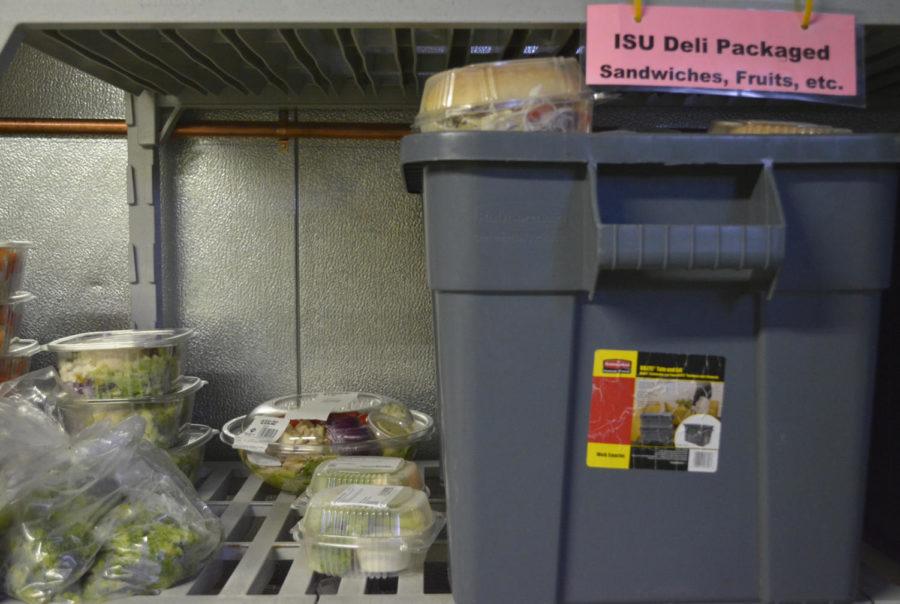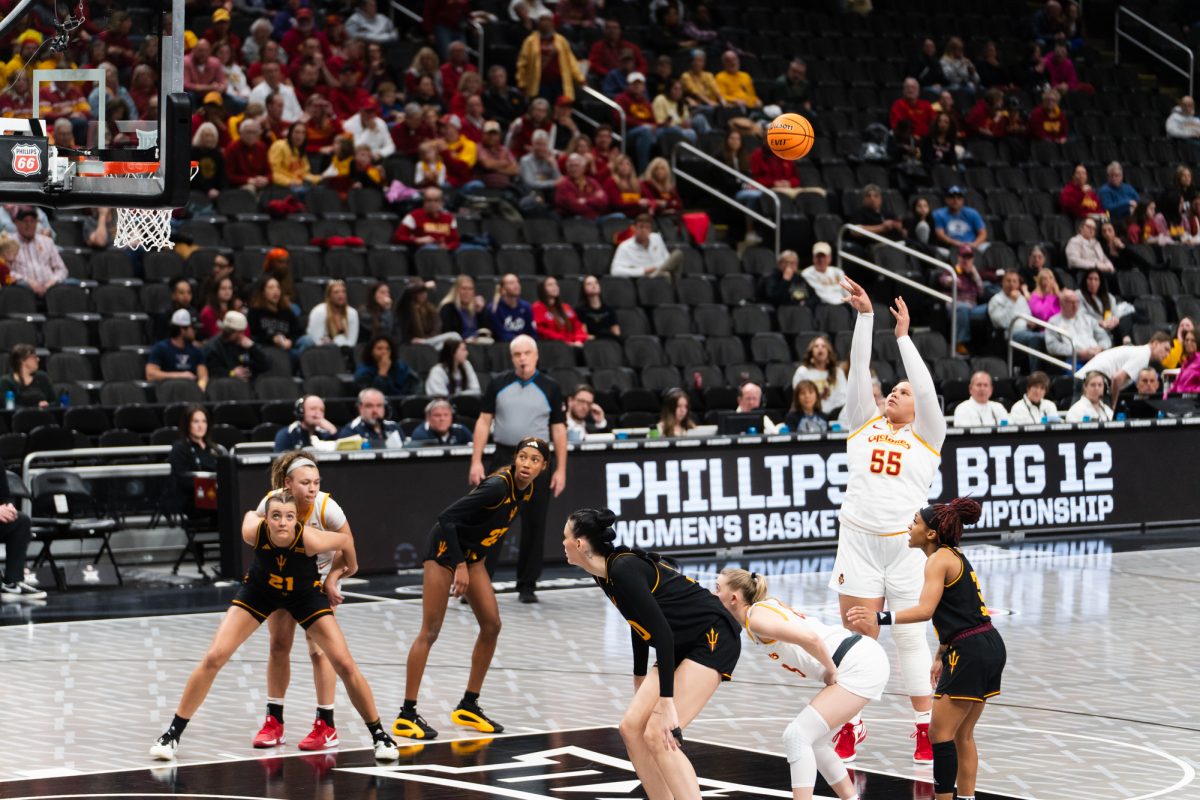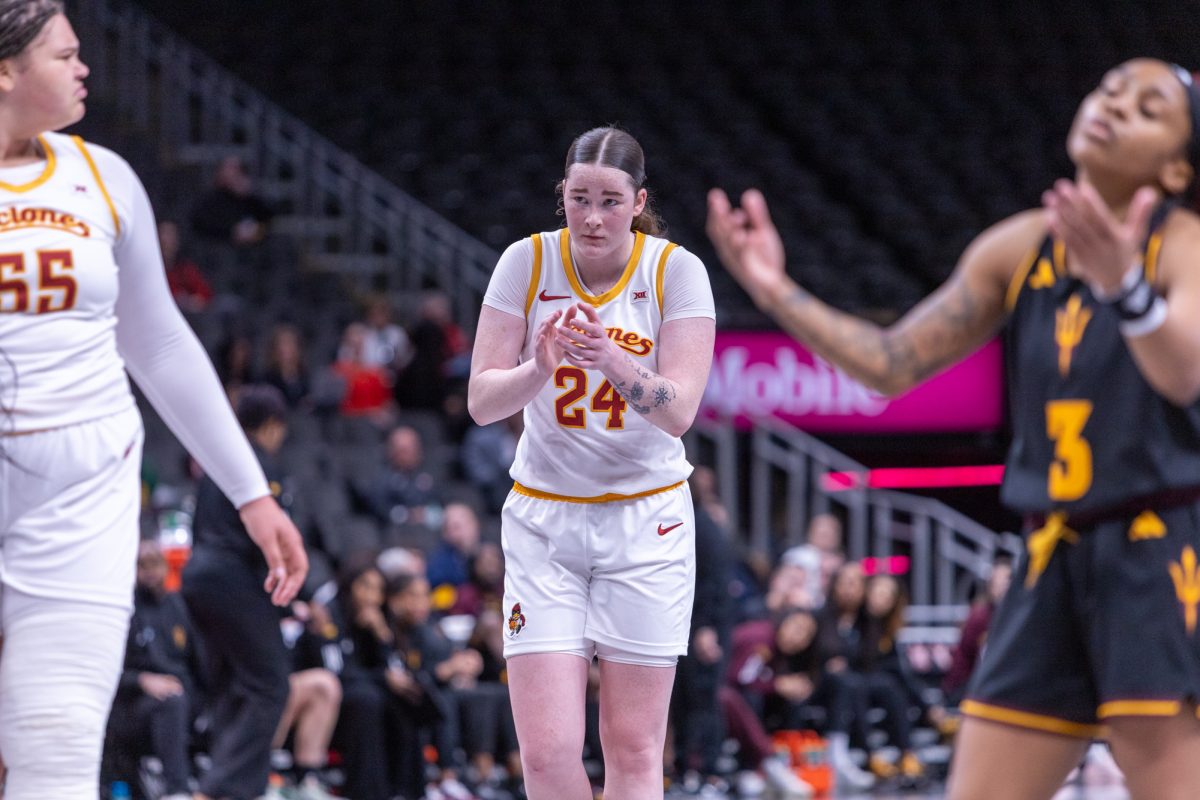The fight against food waste
Katlyn Campbell/Iowa State Daily
The Iowa State Food Recovery Network chapter collects spare food from campus cafés every Friday in an effort to reduce the amount of food waste produced at Iowa State. The food is donated to Food at First, a meal program and market, so that those in needs can eat.
March 20, 2018
Forty percent of food produced ends up as waste. Over 90 percent of that waste ends up sitting in landfills.
That 1.3 billion tons of food waste, and what people can do to lessen it, was the focus of “Wasted: A Story of Food Waste,” a documentary for which a viewing and discussion was held Tuesday night. The event was part of the 2017-18 Dean Helen LeBaron Hilton Endowed Chair Lecture Series.
“Wasted: A Story of Food Waste” is a documentary released in October 2017. It focuses on famous chefs around the world and how they tackle the issue of wasting food in the restaurant industry.
The documentary proposes a pyramid structure to help reduce the amount of food waste that goes into landfills.
The first step in the pyramid is to feed people, but if the waste is unable to do so, the next step is to feed it to animals. If the waste is inedible, the next step is to convert it to energy or compost it. Finally, the last resort in the pyramid is putting the product into landfills.
When food waste is trapped in landfills, the lack of oxygen causes it to give off methane gas, which is 23 percent stronger of a greenhouse gas than carbon dioxide.
But the issue also starts on the agricultural level. One million tons of produce go unharvested each year because they aren’t seen as attractive or useful enough.
Chefs usually use as much of pigs and cows as possible, also known as “nose to tail” cooking, out of respect to the animal. But rarely do we think of the same analogy with a landscape and vegetables, said Dan Barber, chef and co-owner at Blue Hill Farm.
This story of food waste is one that spans the globe. Companies worldwide are figuring out unique ways to combat it.
For example, Toast Ale in England turns unused bread crust into beer and in Japan, pigs are fed all kinds of food waste to create various flavored meat.
One of the more accessible ways for the public to help this issue is by composting. Composting is the process of fruits and vegetables breaking down turning into nutrient rich soil.
The documentary showed how local schools compost their food scraps from the cafeteria to help reduce waste from kids’ lunches.
Not only are local companies and schools making strides towards a more sustainable future, but entire nations are as well. Countries like South Korea have almost eliminated food waste going into landfills by charging households for the amount of food waste they create each month.
Following the screening, Lynn Pritchard, co-owner of Table 128 Bistro and Bar, talked about how his restaurant helps out with the issue of food waste.
In culinary training, Pritchard said from the beginning they are taught to be resourceful with everything they use.
“It’s just beat into us,” Pritchard said. “Don’t waste anything.”
Previously, Pritchard had the opportunity to work with Barber. After working a 13 hour shift with him, he was amazed that the only thing left in their kitchen were their gloves.
Now co-running his own restaurant in Clive, Iowa, with his wife, he tries to keep that no waste initiative with him.
“I think almost everyday to myself, how can I reduce what I do everyday to a pile of latex gloves,” Pritchard said.
The documentary and discussion not only talked about food waste on a worldwide scale, but also related it back to the local level.







